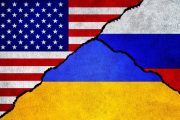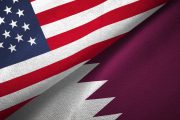
On August 8, the World Bank announced that it would halt all financing for Uganda after the East African nation passed a law outlawing homosexual acts in May. The goal of Uganda’s recent Anti-Homosexuality Law is to safeguard marriage and children by enforcing criminal penalties on acts of sodomy and homosexual rape of children and the vulnerable.
Currently led by President Yoweri Museveni, Uganda, a relatively stable African country, incited the wrath of Western nongovernmental organizations for introducing the death penalty for particular homosexual acts, with prison sentences of up to 20 years for those caught promoting homosexuality.
Notwithstanding fury from the globalist UN and U.S. President Joe Biden, President Museveni justified the legislation, stating that it was vital to safeguarding the role of the family in Ugandan life as well as guaranteeing his country’s cultural independence from the leftist West.
“The signing of the bill is finished, no one will move us,” Museveni declared in a statement after a meeting with members of his National Resistance Movement (NRM) party. “The NRM has never had two languages, what we tell you during the day is what we shall tell you during the night,” he added.
Moreover, the president told his citizens that the country’s economy does not need aid from the West if conditions imposed included acceptance of homosexuality.
In an official statement made after the World Bank decided to freeze loans to Uganda, the president said he hoped “to inform everybody, starting with Ugandans, that Uganda will develop with or without loans.”
“With discipline, patriotism and combating corruption, we shall thrive because our agriculture is there, our industries are growing and our services sector is expanding. It is, therefore, unfortunate that the World Bank and other actors dare to want to coerce us into abandoning our faith, culture, principles and sovereignty, using money. They really under-estimate all Africans,” Museveni stated.
Museveni first published the aforementioned statement in a handwritten letter posted to X, previously called Twitter. An official press release then published the statement on August 10.
The Ugandan leader also elucidated that “merely being a homosexual is not targeted by this law. It is going from being a homosexual to recruiting or coercing others into your deviance, that is targeted by the law.” “We do not need pressure from anybody to know how to solve problems in our society,” he asserted.
Museveni has hitherto said that he would not be coerced by money. After signing the Anti-Homosexuality Law and being threatened by the U.S. government that aid to the country would be cut, Museveni stated, “If they cut aid, we shall sit down and discipline our expenditure, rearrange our budgets; if they interfere with our trade, we shall trade with others.”
Ugandan Information Minister Chris Baryomunsi said that “the World Bank and others should be reminded that Uganda is a sovereign country, making decisions in the interests of its people, and this is the spirit of the anti-homosexuality law.”
According to The European Conservative, World Bank officials reaffirmed that they had suspended funding to Uganda following an on-the-ground assessment, declaring, “No new public financing to Uganda will be presented to our Board of Executive Directors until the efficacy of the additional measures has been tested.”
The World Bank indicated that further “corrective action” could be taken against Uganda and that the country would have to undergo what it called “third-party monitoring” to monitor the new LGBT laws.
Frequently slammed for being an agent of “woke” Western values attempting to influence the Global South, the World Bank directs billions of dollars’ worth of funding into Africa yearly and, before their most recent decision to suspend aid to Uganda, had cooperated with civil society groups to encourage what it characterizes as “sustainable growth.”
Unlike neighboring Kenya and Rwanda, Uganda has recently moved away from Western nations and moved toward other countries such as Russia to manage its national development.
A vocal proponent of the recent anti-LGBT laws, pastor Martin Ssempa said the World Bank’s boycott would only motivate Uganda to instead depend more on BRICS, a group of countries comprising Brazil, Russia, India, China, and South Africa.
The World Bank is the latest entity to sanction Uganda, following the U.S. government’s introduction of visa restrictions for sponsors of the Anti-Homosexuality Law.
However, Uganda and the World Bank are continuing discussions to “avoid this diversion if possible,” Museveni said.
Museveni, who has governed Uganda since 1986, recently lambasted EU attempts to extract more raw materials from Uganda in the form of copper and tungsten amid rumors that Uganda could improve ties with Moscow or Beijing.
The country is highly dependent on Ukrainian grain, and its foreign minister met with Sergei Lavrov in Moscow in May 2023 to talk about facilitating the flow of grain supplies. The Uganda-Russia talks came amid the West’s criticism of Russia for leveraging the control of grain flow into Africa for geopolitical reasons.
The recent anti-LGBT legislation has been regarded as part of a wider cultural and political distancing from the West and catering to the needs of Uganda’s religious community. For some time already, Ugandan lawmakers have expressed worries over the immoral recruitment of children into the LGBT lifestyle. Groups such as Sexual Minorities Uganda, founded in 2004 but outlawed in 2022, have reportedly targeted minors with cash payments for their involvement in homosexual, X-rated films. Propaganda meant to groom youth into supporting and even participating in homosexuality had also been uncovered in schools and elsewhere. Similar anti-LGBT legislation was passed in Kenya, supported by the politically consequential Catholic clergy.
The World Bank’s decision coincides with last week’s decision by the Ugandan government to not renew an agreement with the UN, leading to the closure of UN offices.
The targeting of Uganda by Western financial institutions also comes in the wake of a general decline of Western prestige and influence in Africa, with the recent Niger coup as an example.
A former Marxist revolutionary, Museveni is known to sympathize with Russia. The Soviets supported the coup that propelled him to power in 1986.
He recently met with Russian President Vladimir Putin at a summit in St. Petersburg, with the African leader making the major decision to not acknowledge Kosovo on an official visit to Serbia, as he corroborated claims of major Russian investment to facilitate the development of nuclear power in Uganda.




